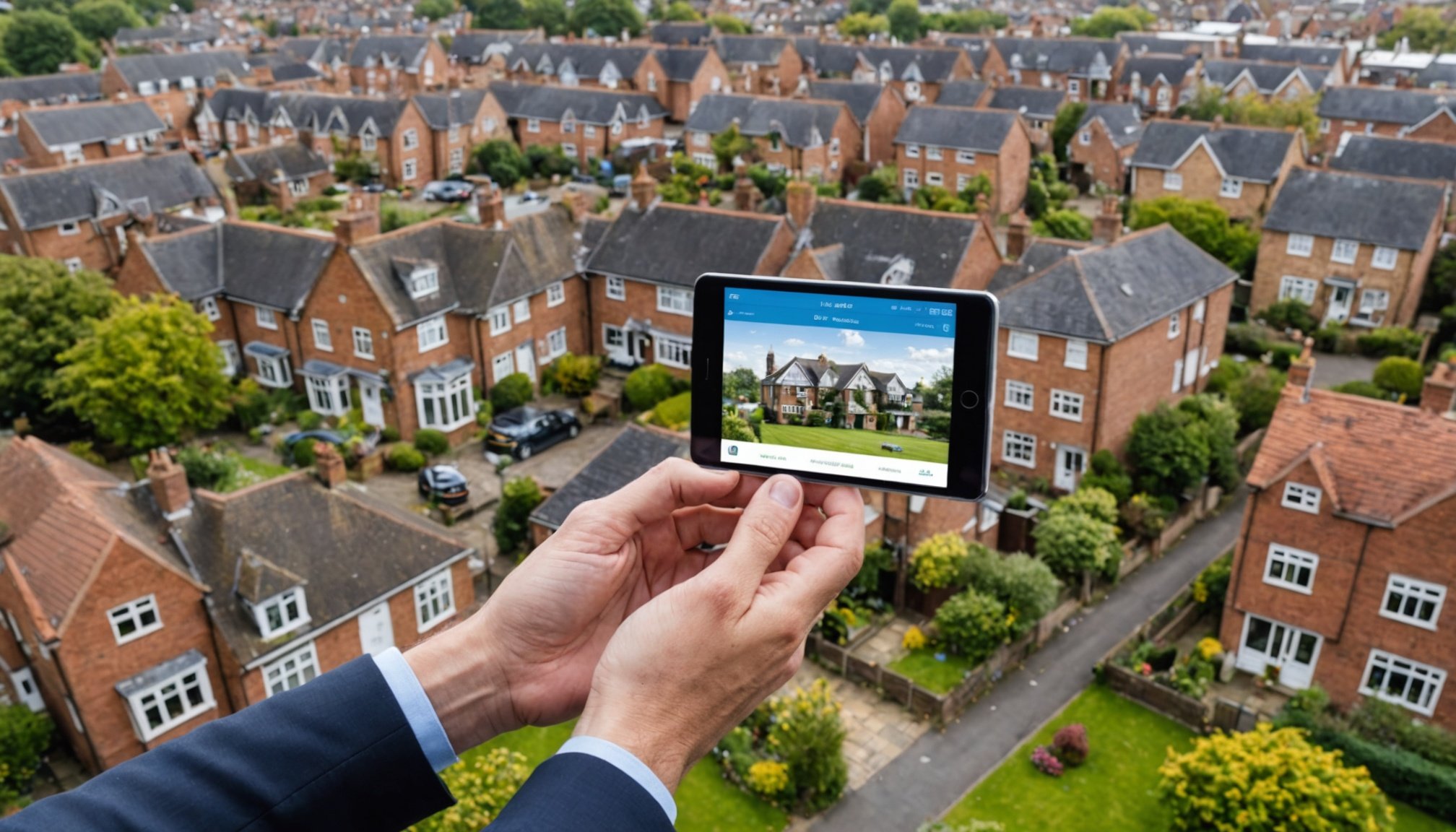Transforming Real Estate Valuation: Cutting-Edge AI Technologies Reshape Property Appraisals in the UK
The real estate industry in the UK is undergoing a significant transformation, driven by the integration of cutting-edge AI technologies. These innovations are revolutionizing the way property valuations are conducted, making the process more efficient, accurate, and data-driven. Here’s a deep dive into how AI is reshaping the landscape of real estate valuations.
The Role of AI in Property Valuation
AI is at the forefront of the revolution in property valuations, offering a plethora of benefits that traditional methods cannot match. Here are some key ways AI is impacting this sector:
Also read : Transforming Visitor Experiences: Innovative AI Technologies Shaping UK Museums
Real-Time Property Valuation
AI agents can collect and analyze vast amounts of property-related data in real-time, providing accurate valuations instantly. This includes factors such as the property’s condition, amenities, historical prices, market demand, and economic trends. For instance, AI-driven valuation models can assess a property’s worth based on recent sales data in the area, location, and size, offering a more accurate estimate compared to traditional methods[1][3][5].
Predictive Market Analysis
AI leverages predictive analytics to forecast future property values, helping realtors and investors identify profitable opportunities. By analyzing market trends, developments in nearby areas, and economic indicators, AI agents can predict the potential future valuations of properties. This predictive capability allows stakeholders to make informed decisions about when to buy or sell, maximizing their investment potential[1][3][5].
Also read : Discover the game-changing ai innovations transforming public safety in the uk
Cost Efficiency and Fraud Detection
The use of AI agents for property valuations is cost-efficient, eliminating the need for human intervention and reducing operational costs. Additionally, AI can detect irregularities in property information that may indicate potential fraud, using machine learning techniques to evaluate data and alert real estate agents to any discrepancies[3].
Proptech Companies Leading the Charge
Several proptech companies in the UK are at the vanguard of this technological shift. Here are a few notable examples:
VTS
VTS is a proptech company that offers software for commercial real estate management. Their platform manages everything from leases to asset strategy on a single dashboard, using real-time deals and predictive analytics to provide informed recommendations. This centralized approach enhances decision-making for owners, brokers, and tenants[2].
Intellectsoft
Intellectsoft specializes in building customized real estate software for residential and commercial property management. Their solutions include project cost evaluations, property monitoring, and regular management processes like payment collection and property maintenance. This tailored approach ensures that each client’s specific needs are met efficiently[2].
TEKCE
TEKCE, an international real estate group, has launched MyTEKCE, a digital platform designed to centralize data and streamline the buying and selling of properties. This platform provides tools for sellers to request free property valuation reports, monitor listings, and complete the sales process online, enhancing transparency and reducing administrative friction[4].
How AI Enhances Decision Making
AI technologies are not just about automating processes; they also provide deep insights that enhance decision-making in the real estate sector.
Speed and Efficiency
AI can process and analyze vast amounts of data within seconds, delivering valuations that would take human appraisers days or weeks to complete. This speed is crucial in competitive markets where timely decisions can make a significant difference[5].
Consistency and Data-Driven Insights
Unlike human appraisers, AI systems do not suffer from subjective bias or fatigue, ensuring consistent results across multiple properties. AI can also identify patterns and correlations in the data that might escape even the most experienced appraisers, leading to more accurate and informed valuations[5].
Scalability
AI systems can handle an almost unlimited number of properties simultaneously, making them ideal for large-scale valuation projects such as institutional portfolio assessments. This scalability is particularly beneficial for managing large real estate portfolios efficiently[5].
Limitations and Future Directions
While AI offers numerous advantages, there are also some limitations and areas for future development.
Quality of Data and Local Knowledge
AI is only as reliable as the data it is trained on. Incomplete or inaccurate datasets can lead to flawed valuations. Additionally, human appraisers often possess deep insights into specific neighborhoods, market conditions, and unique property features that AI may miss. Integrating local knowledge with AI-driven valuations could be a key area for future development[5].
Emotional and Subjective Factors
Elements like a property’s aesthetic appeal or historical significance can influence its value but may not be fully captured by AI algorithms. Future AI agents may need to be trained to consider these emotional and subjective factors to provide a more comprehensive valuation[3][5].
Regulatory and Legal Hurdles
In many jurisdictions, property valuations must comply with strict regulations that necessitate human oversight. Fully AI-driven processes may face challenges in these areas, requiring a balanced approach that combines AI efficiency with human expertise[5].
Practical Insights and Actionable Advice
For those navigating the real estate market, here are some practical insights and actionable advice:
- Leverage AI for Market Trends: Use AI tools to stay informed about emerging market trends. This can help you anticipate the right time to buy or sell, maximizing your investment potential[1].
- Utilize Proptech Solutions: Consider using proptech platforms like MyTEKCE or VTS to streamline your property management and valuation processes. These solutions can enhance transparency and efficiency[2][4].
- Combine AI with Human Expertise: While AI offers significant advantages, it is crucial to combine AI-driven valuations with human expertise, especially for unique or high-value properties. This hybrid approach ensures that all factors, including local knowledge and subjective elements, are considered[5].
Table: Comparing Traditional and AI-Driven Property Valuations
| Criteria | Traditional Property Valuations | AI-Driven Property Valuations |
|---|---|---|
| Speed | Days or weeks to complete | Real-time valuations |
| Accuracy | Prone to human bias and errors | High accuracy using big data analytics |
| Scalability | Limited to the capacity of human appraisers | Can handle an almost unlimited number of properties |
| Cost Efficiency | Higher operational costs due to human intervention | Cost-efficient, reducing operational costs |
| Predictive Analytics | Limited predictive capabilities | Advanced predictive analytics for future valuations |
| Local Knowledge | Deep insights into specific neighborhoods and market conditions | May miss unique local factors, requires integration with human expertise |
Quotes from Industry Experts
- “AI is transforming the home buying process by providing deeper insights into property valuations and market trends. This technology empowers you to make data-driven decisions, enhancing your overall experience in the housing market.”[1]
- “MyTEKCE marks a step change in how property is bought and sold. Our platform introduces a new era of personalisation, connecting buyers and sellers with unprecedented ease.”[4]
- “The future of AI agents in property valuation is revolutionizing the real estate industry by making processes smarter, faster, and more accurate. Unlike traditional property valuation methods, AI agents use machine learning, big data analytics, and predictive modeling to assess data and provide precise values for properties.”[3]
The integration of AI technologies in real estate valuations is a game-changer for the industry. From real-time valuations and predictive market analysis to cost efficiency and fraud detection, AI is streamlining the process and enhancing decision-making. While there are limitations to consider, the future looks promising with the potential for AI to be integrated with augmented and virtual reality tools, and to consider emotional and subjective factors.
As the real estate sector continues to evolve, embracing these cutting-edge technologies will be crucial for staying ahead in the market. Whether you are a buyer, seller, or investor, understanding and leveraging these AI-driven solutions can lead to more informed decisions, greater efficiency, and ultimately, a more successful and enjoyable experience in the housing market.











